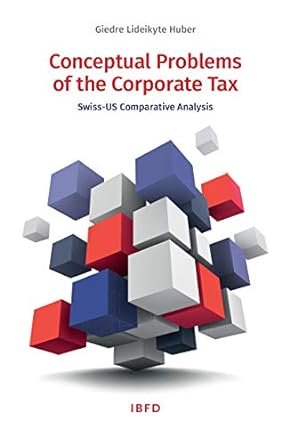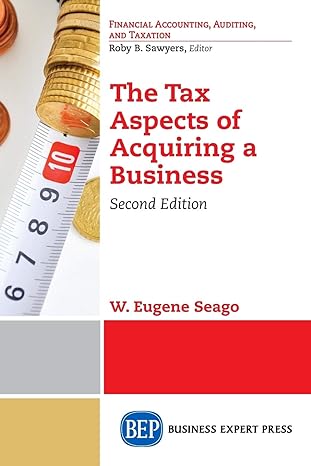Go back


Conceptual Problems Of The Corporate Tax Swiss USS Comparative Analysis(1st Edition)
Authors:
Giedre Lideikyte Huber

Cover Type:Hardcover
Condition:Used
In Stock
Include with your book
Free shipping: April 04, 2024Popular items with books
Access to 3 Million+ solutions
Free ✝
Ask 10 Questions from expert
200,000+ Expert answers
✝ 7 days-trial
Total Price:
$0
List Price: $68.00
Savings: $68(100%)
Book details
ISBN: 908722513X, 978-9087225131
Book publisher: IBFD (April 1, 2019)
Get your hands on the best-selling book Conceptual Problems Of The Corporate Tax Swiss USS Comparative Analysis 1st Edition for free. Feed your curiosity and let your imagination soar with the best stories coming out to you without hefty price tags. Browse SolutionInn to discover a treasure trove of fiction and non-fiction books where every page leads the reader to an undiscovered world. Start your literary adventure right away and also enjoy free shipping of these complimentary books to your door.
Conceptual Problems Of The Corporate Tax Swiss USS Comparative Analysis 1st Edition Summary: What do we really know about corporate tax? Who does it affect and why? Does it somehow impact shareholders, as originally intended? Is it consistent with the fundamental principles governing the taxation of individuals? This book, based on the author’s PhD dissertation, explores these questions via a thorough analysis of the Swiss and US corporate tax systems, considering legal, economic and philosophical aspects. To begin, the book analyses the conceptual difficulties in defining a corporate taxpayer. In particular, it demonstrates that an optimal definition of a taxable corporation does not exist. An entity that is taxed as a corporation in a certain country may be considered a flow-through vehicle in another jurisdiction. This entity classification mismatch creates infamous cross-border complications, giving rise to hybrid entities that may lead to either double taxation or the creation of “homeless income”. This impossibility to define a corporate taxpayer in a satisfactory manner relates to deeper corporate tax problems, which are explored further in this book. It guides the reader through the historical development of corporate taxation, with specific emphasis on the concepts of economic double taxation and the ability to pay. The author also presents contemporary economic and philosophical approaches to corporate taxation. For instance, the research on the economic incidence of corporate tax shows that corporations shift their tax burdens onto various groups of persons that cannot always be precisely identified. Can a tax be considered legitimate when its bearers cannot be clearly established? Analysing fundamental taxation principles, this book argues that the mechanisms of contemporary corporate tax are very far away from producing their initially intended effect, i.e. affecting mainly – or only – shareholders. This publication was subjected to a single-blind peer review by international academic experts in the field and topic area.
Customers also bought these books
Frequently Bought Together
Top Reviews for Books
Chow Hoi
( 5 )
"Delivery was considerably fast, and the book I received was in a good condition."










